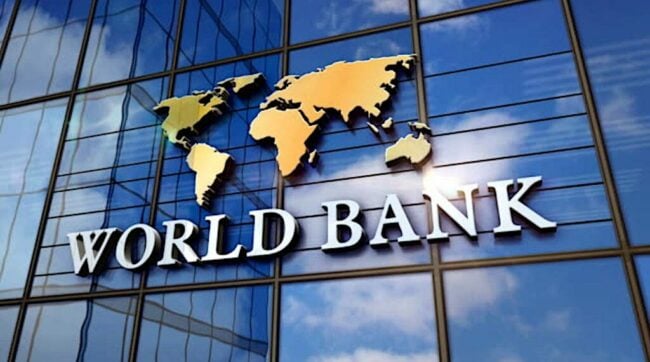•Oil oversupply, weak growth to drive price decline •Says fertilizer costs to rise 21% •Warns Nigeria to brace for fiscal shifts
Global commodity prices are forecast to fall by seven per cent in both 2025 and 2026, reaching their lowest level in six years as a widening oil glut and sluggish global growth continue to weigh on demand, according to the World Bank Group’s latest Commodity Markets Outlook.
The report warned that while falling energy and food prices could help ease inflationary pressures in many developing economies, soaring fertilizer costs may hurt agricultural productivity, a challenge with direct implications for Nigeria’s food security and farmers’ profitability.
The World Bank projects energy prices will decline by 12 per cent in 2025 and 10 per cent in 2026, with Brent crude oil expected to average $68 per barrel next year and fall further to $60 in 2026, the lowest since 2020.
The global oil glut is forecast to expand by 65% above its 2020 peak due to weak demand in China, rising output from OPEC+ members, and the accelerating shift to electric and hybrid vehicles.
For Nigeria, a major crude exporter, this trend poses fiscal challenges.
Lower oil prices could reduce foreign exchange inflows and test the Central Bank of Nigeria’s (CBN) ability to sustain currency stability, even as declining global energy prices help moderate domestic inflation and fuel import costs.
Indermit Gill, the World Bank’s Chief Economist and Senior Vice President for Development Economics, said, “Commodity markets are helping to stabilise the global economy. Falling energy prices have contributed to lower global inflation. But this respite will not last. Governments should use it to get their fiscal house in order, make economies business-ready, and accelerate trade and investment.”
While food prices are expected to decline moderately, down 6.1 per cent in 2025 and 0.3 per cent in 2026, fertilizer prices are projected to surge 21 per cent next year due to high input costs and trade restrictions before easing five per cent in 2026.
Experts say the price surge could erode farmers’ profit margins and heighten risks for Nigeria’s agricultural sector, already grappling with high logistics costs and limited access to credit.
Fertilizer price spikes could further inflate domestic food prices, offsetting gains from lower international grain prices.
In contrast to the general downturn, precious metals are rallying, and Gold is expected to rise 42 per cent in 2025 and another five per cent in 2026, while silver could gain 34 per cent and eight per cent, respectively, buoyed by central bank purchases and safe-haven demand.
Nigeria, which holds untapped deposits of gold and other minerals, could benefit from increased investor interest in solid minerals as prices surge.
The World Bank report notes that declining oil and food prices are easing global inflation, which could support Nigeria’s monetary policy objectives after months of tight interest rate management by the CBN.
However, policy uncertainty, geopolitical conflicts, and climate shocks could still disrupt supply chains, potentially reversing gains from lower energy prices.
The Bank also flagged risks from rising electricity demand driven by artificial intelligence (AI) and data centers, which could increase global demand for energy and base metals such as aluminum and copper, both critical to Nigeria’s industrial ambitions.
According to Ayhan Kose, the World Bank’s Deputy Chief Economist and Director of the Prospects Group, the anticipated dip in oil prices offers a rare opportunity for Nigeria and other developing economies to pursue fiscal and subsidy reforms that strengthen resilience.
“Lower oil prices provide a timely opportunity for developing economies to advance fiscal reforms that promote growth and job creation,” Kose said.
“Phasing out costly fuel subsidies can free resources for infrastructure and human capital, areas that strengthen long-term productivity and rebuild fiscal space,” he added.
The report’s special section on international commodity agreements finds that while past efforts, such as production quotas and trade restrictions, briefly stabilized prices, few achieved lasting success.
It urges commodity-dependent economies like Nigeria to invest in technology, data transparency, and market diversification to build resilience against volatility and external shocks.
The World Bank’s forecast suggests a mixed outlook for Nigeria, relief from energy-driven inflation and import costs, but renewed pressure on fiscal revenues, agriculture, and export earnings.
Experts say the government must balance macroeconomic stability with reforms that stimulate investment and diversify exports beyond crude oil.
[ad_1]
Images are for reference only.Images and contents gathered automatic from google or 3rd party sources.All rights on the images and contents are with their legal original owners.
[ad_2]

